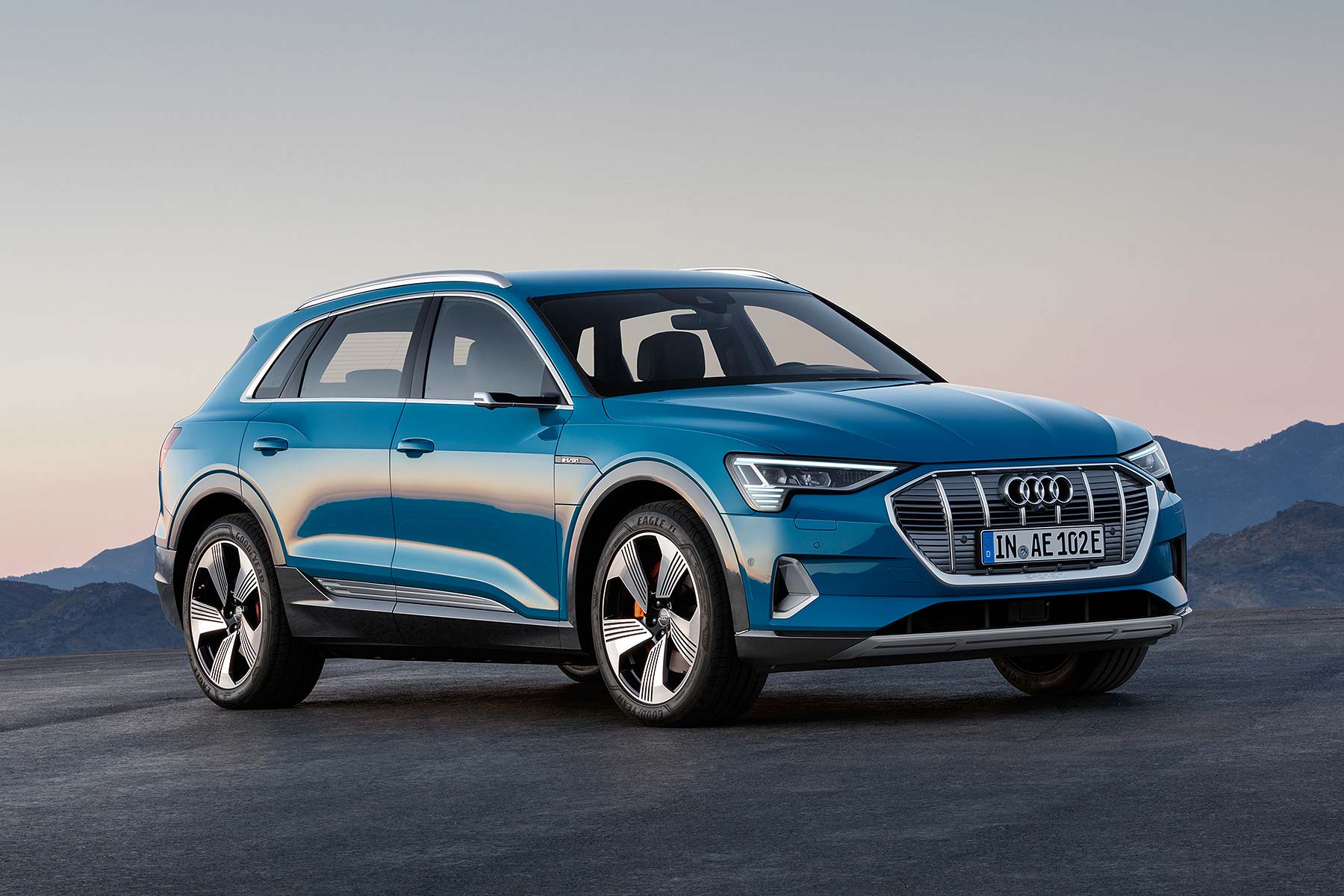 The Audi E-tron is an all-electric SUV that marks the beginning of Audi’s electric car push. It is the first of 12 all-electric Audis to be launched between now and 2025. It arrives in European dealers later this year.
The Audi E-tron is an all-electric SUV that marks the beginning of Audi’s electric car push. It is the first of 12 all-electric Audis to be launched between now and 2025. It arrives in European dealers later this year.
The five-seat mid-size e-tron SUV will quickly be joined by an E-tron Sportback in 2019, and Audi’s also planning to show an E-tron GT coupe concept car at the 2018 LA Auto Show in November. It’s co-developing this car with Porsche.
By 2025, 1 in 3 new Audis will be fully electric. That’s why Peter Mertens, Audi’s technical director, says it is “definitely a highlight in the history of our company”.
The new electric Audi E-tron is the latest premium EV SUV to launch, following the Tesla Model X, Jaguar I-Pace and recently-revealed Mercedes-Benz EQC. Surprisingly, BMW has yet to respond with a production-ready electric SUV.
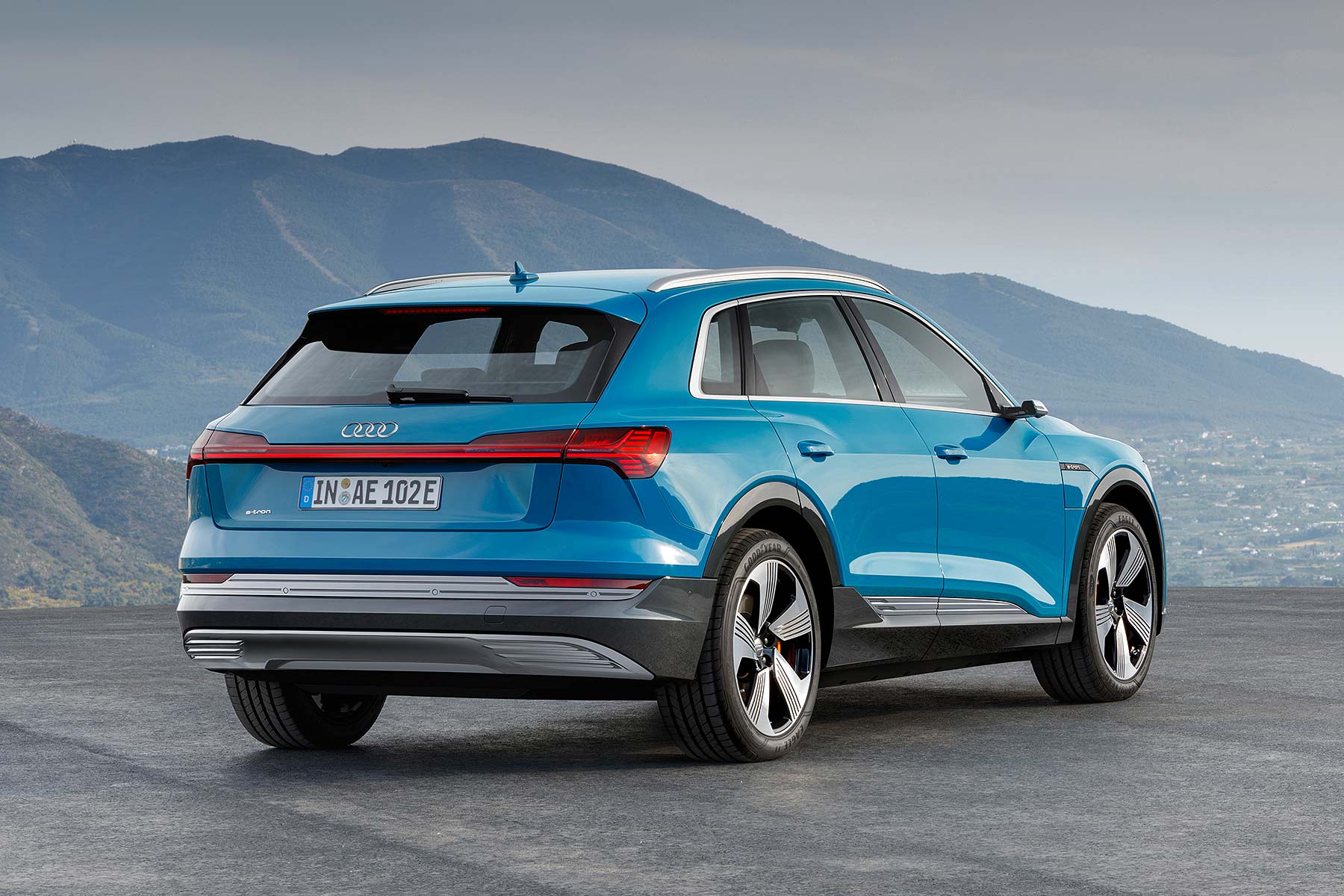
First, the top-line stats for the new Audi E-tron. It has a 95kWh battery (only the 100kW Tesla Model X has a bigger battery), and Audi’s quoting a 249-mile range (matching the Mercedes-Benz EQC – but this could go up when final production figures are revealed) and 0-60mph in 6.4 seconds. It has two electric motors, one in the front and one in the rear. The brand’s trademark quattro all-wheel drive is thus maintained.
The front produces 135kW (180hp), and the rear produces 140kW (188hp), which boosts to 165kW (221hp) for six-second bursts. This cuts the 0-60mph time to 5.5 seconds.
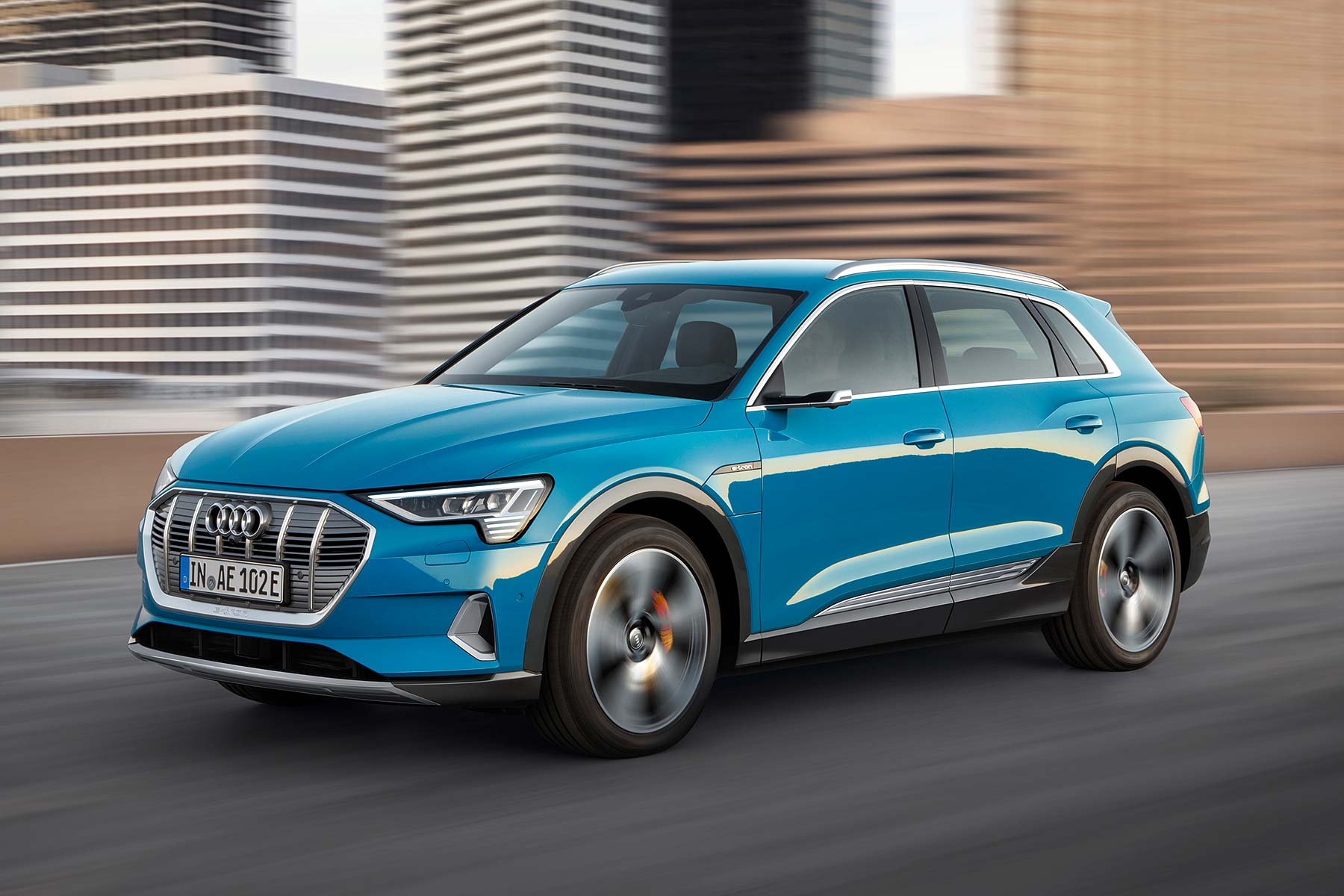
In the United States, the Audi E-tron costs $74,800, and in Germany, €79,900. In the UK, a price tag of around £70,000 is expected – which will reduce by £4,500 once the government Plug-in Car Grant is subtracted.
Audi E-tron: in detail
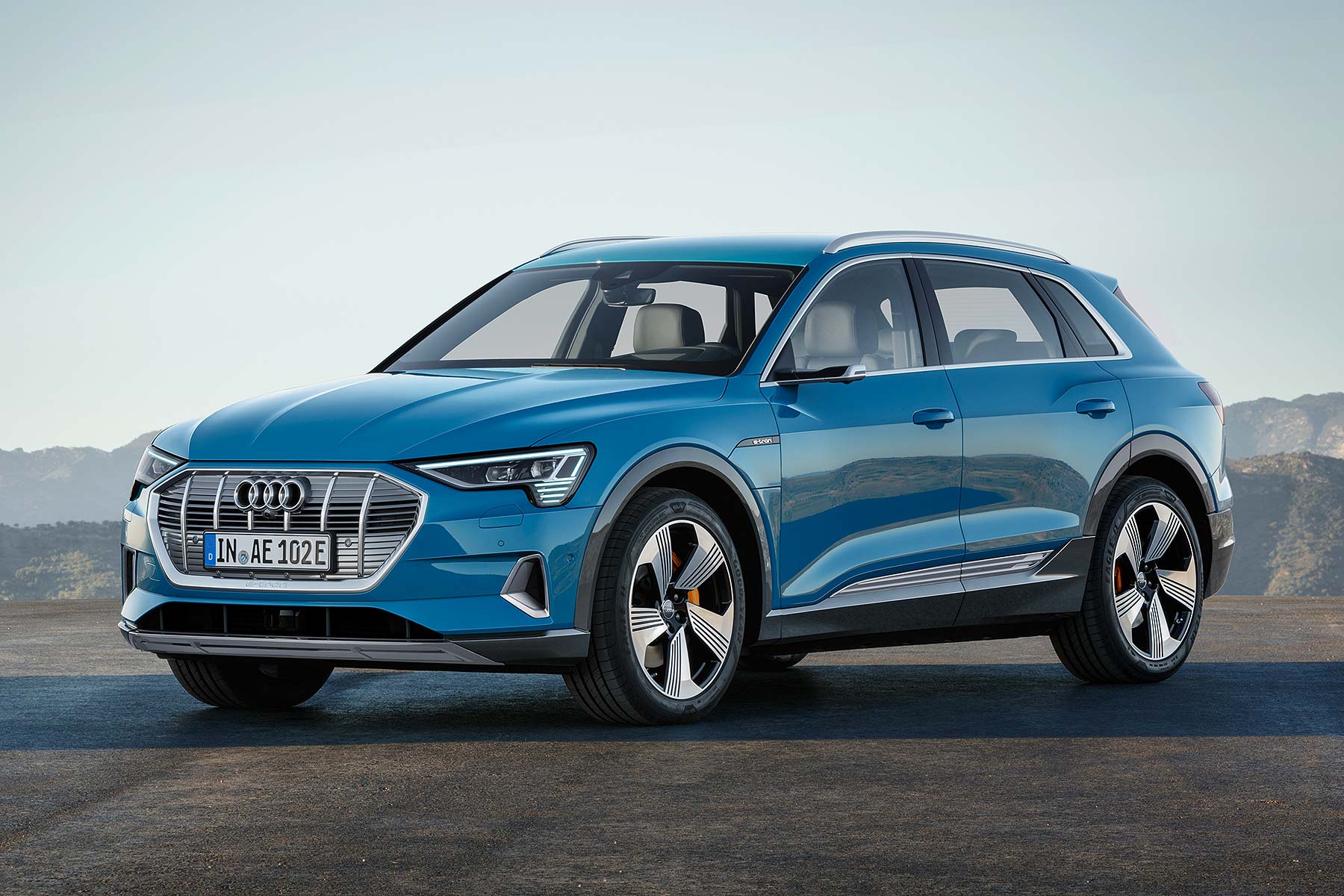
Distinguishing the Audi E-tron at the front is a platinum grey singleframe grille. Fully closed, this will become a defining feature of Audi’s full EVs. There are also four horizontal LED slats within the headlights, which will be another E-tron signature.
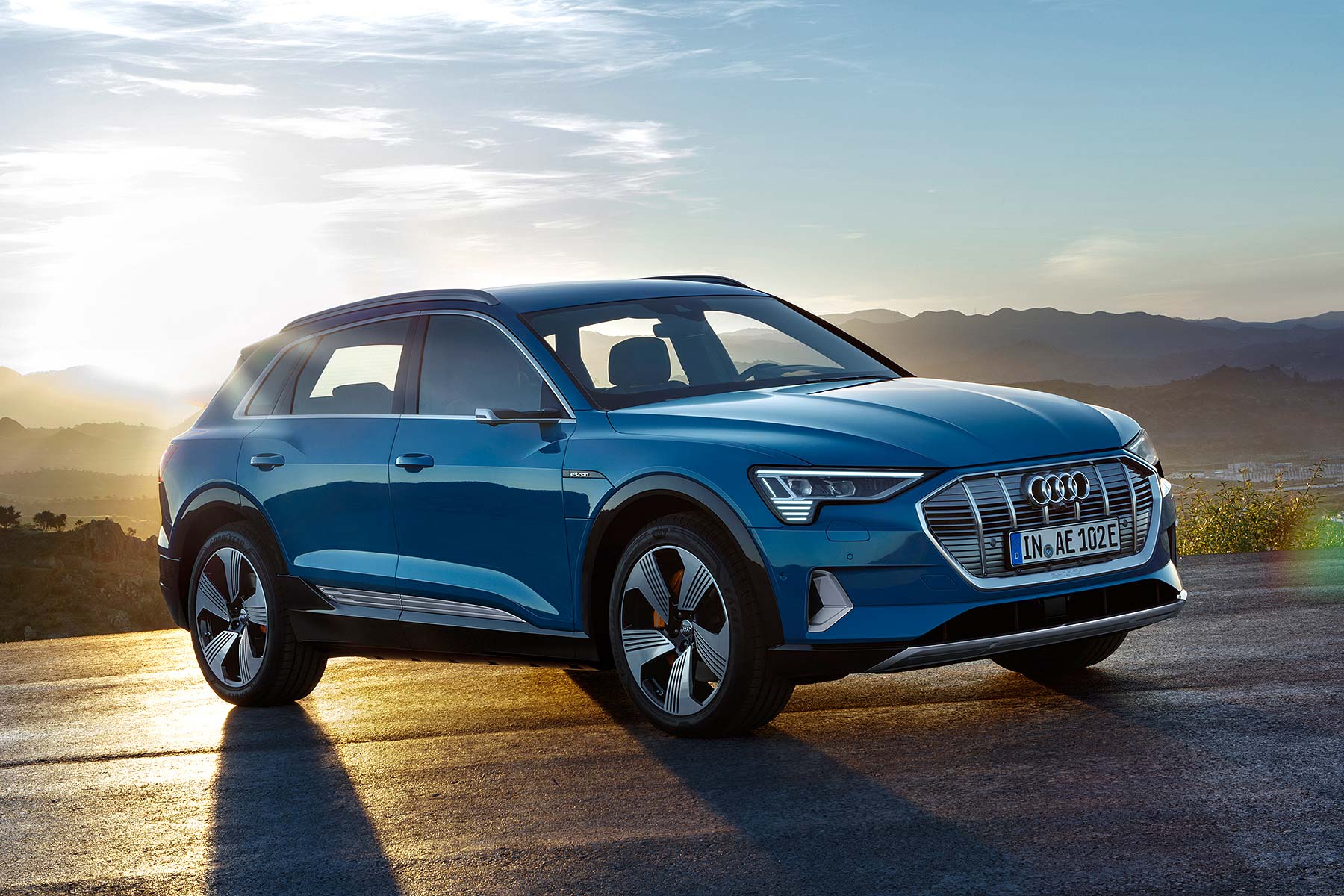
At the side, it’s contoured and equipped with muscular arches like other Audi SUVs, while the black inserts on the lower doors mark out the location of the battery “and thus the energy centre of the Audi E-tron”.
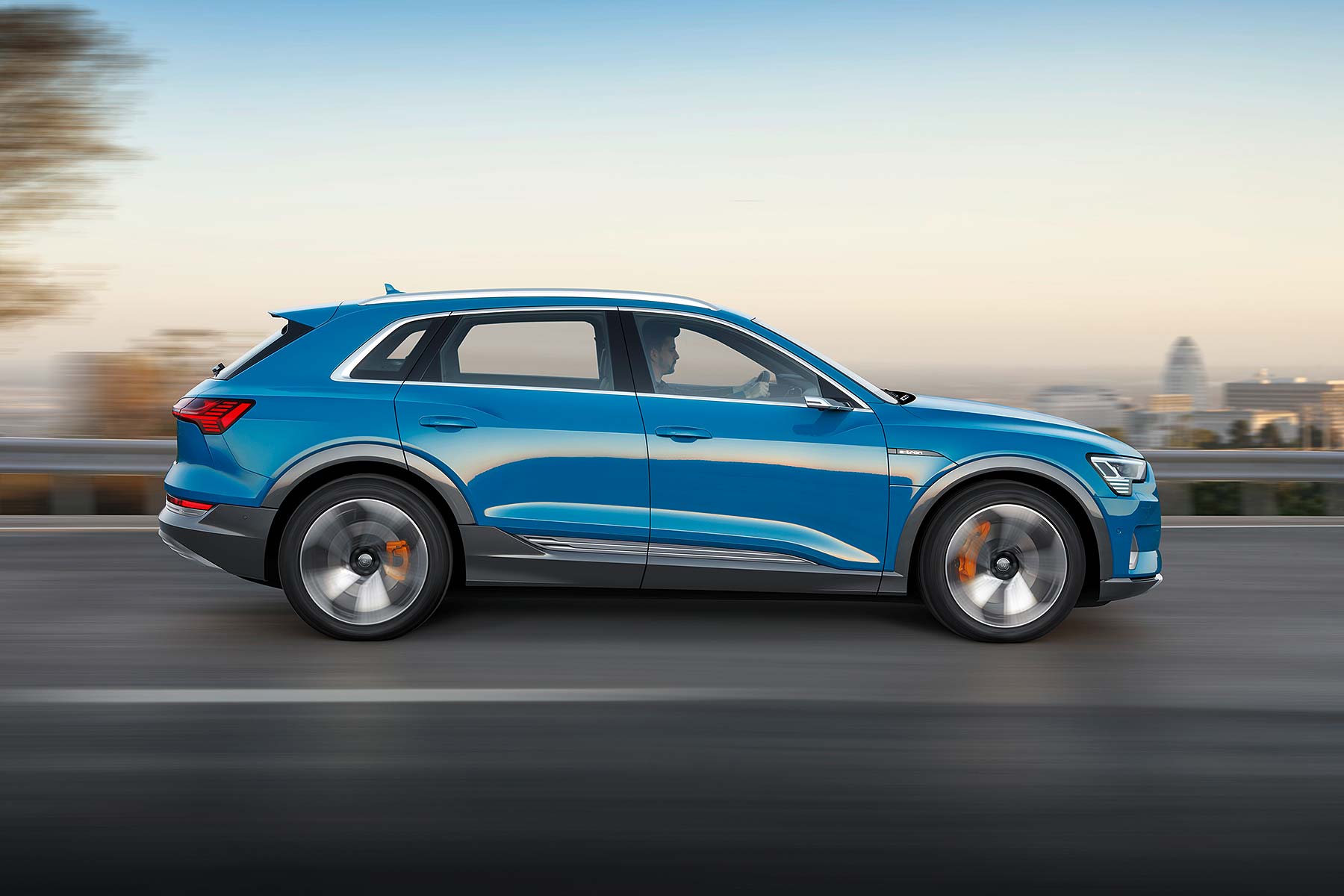
The batteries are mounted low and centrally within the platform, aiding both handling and packaging.
At the rear, the broad LED light strip mimics the high-end look of the Audi A7, A8 and Q8. Audi says the LED strips in the outermost edges “are [a] graphical representation of full battery charge”. It also highlights the lack of tail pipes with cross-slats in the rear diffuser.
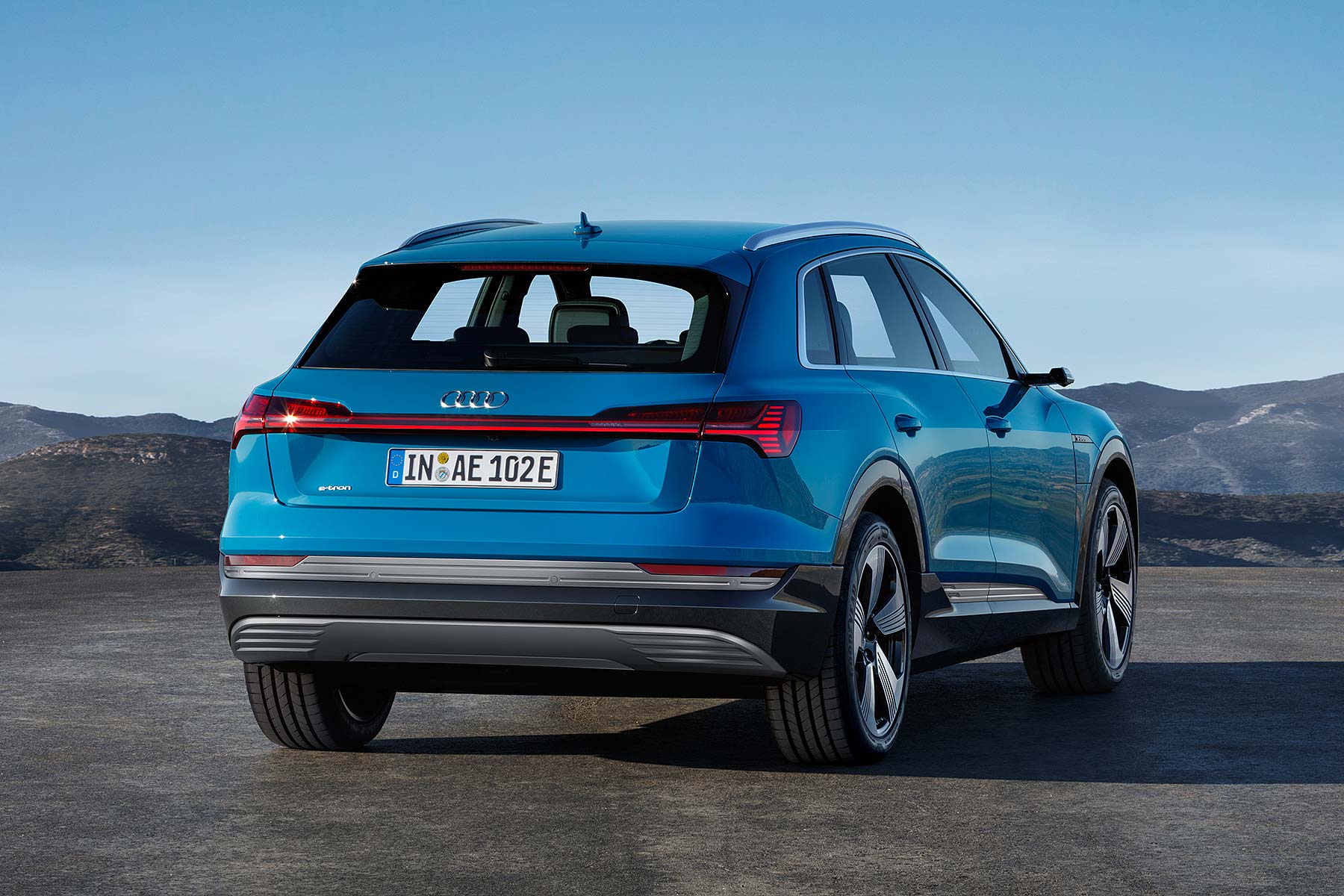
Audi says the E-tron uses world-first electrohydraulic brake control. This sees energy recovered by the electric motors in more than 90 percent of decelerations – topping up the battery as the E-tron slows down.
20-inch alloys are standard, and the 255/50-second tyres have been aero-tuned. Fully adaptive air suspension is standard; it drops down at speed to reduce drag. The full range of height-adjust is 76mm – that’s three inches – which also improves the E-tron’s off-road ability.
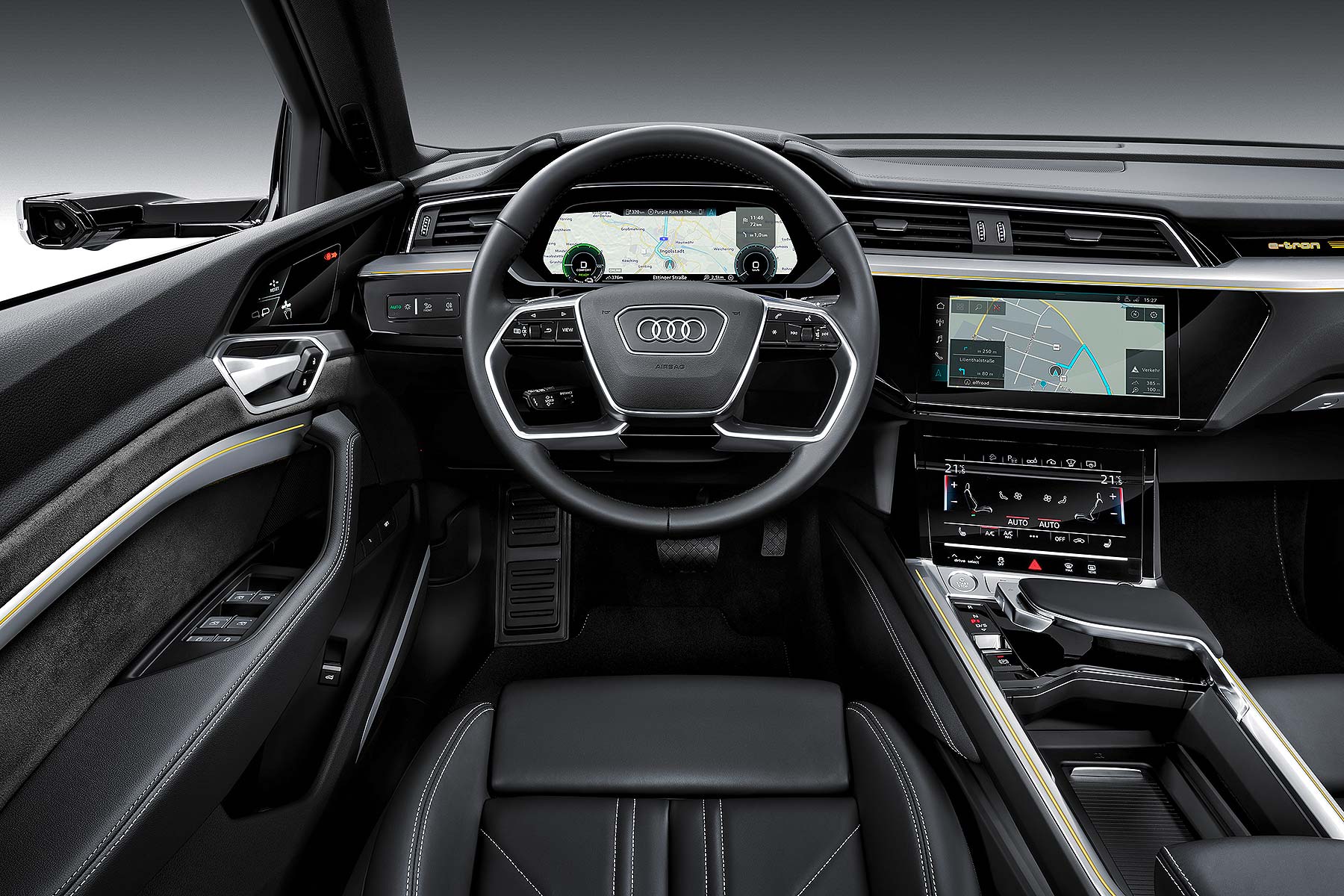
It also has world-first virtual door mirrors as an option. These reduce drag from the bodywork and further help boost the range. Their colour displays are neatly integrated into the door panels (see above).
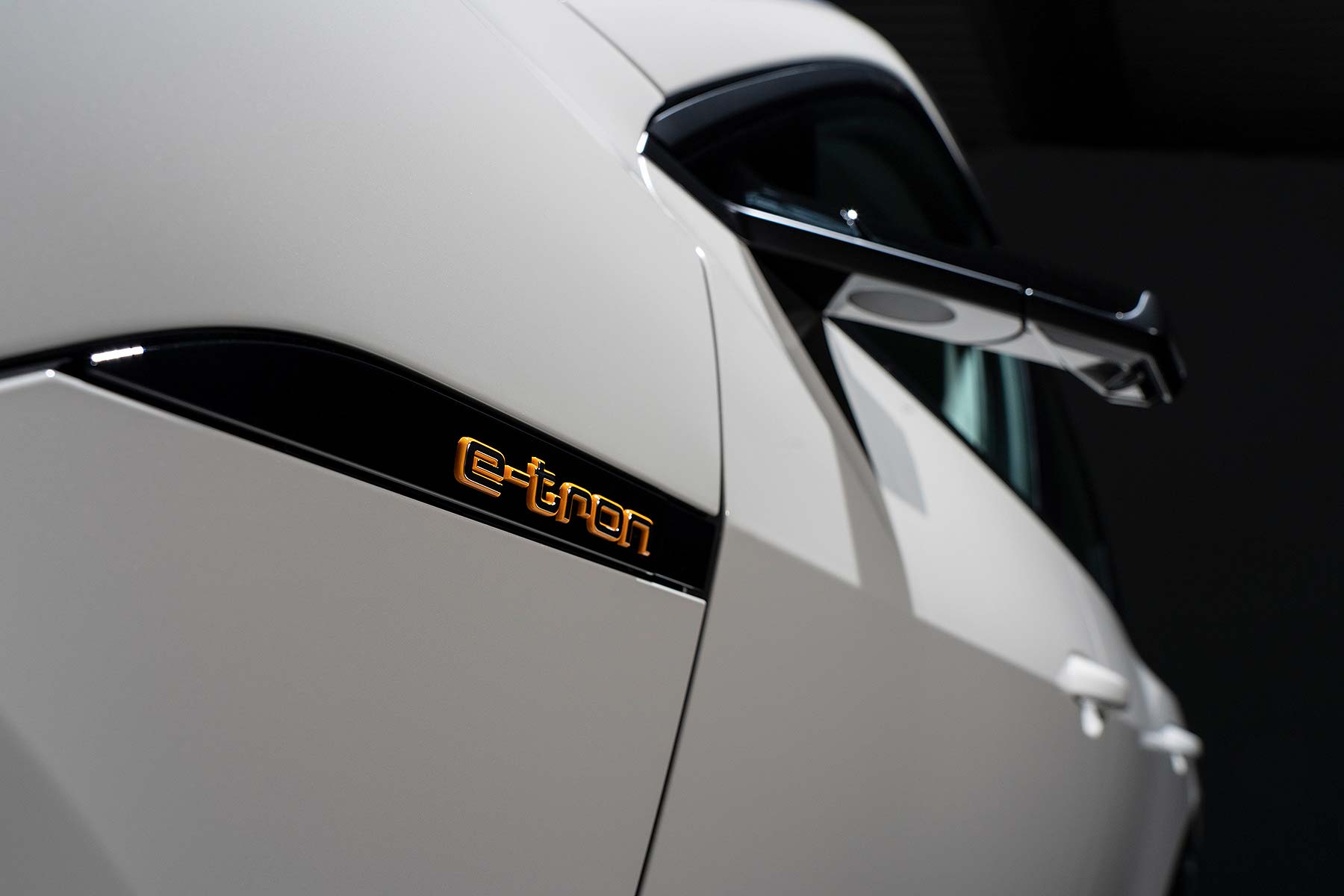
The Audi E-tron is ready to accept 150kW DC fast charging. This will give it an 80 percent charge in 30 minutes. The standard charger is an 11kW AC unit, which tops up in around eight and a half hours (a 22kW fast-charger, which halves this time, is optional); Audi’s also teamed up with Amazon to offer ‘Audi Home Charging powered by Amazon Home Services’ for full app-controlled home charging.
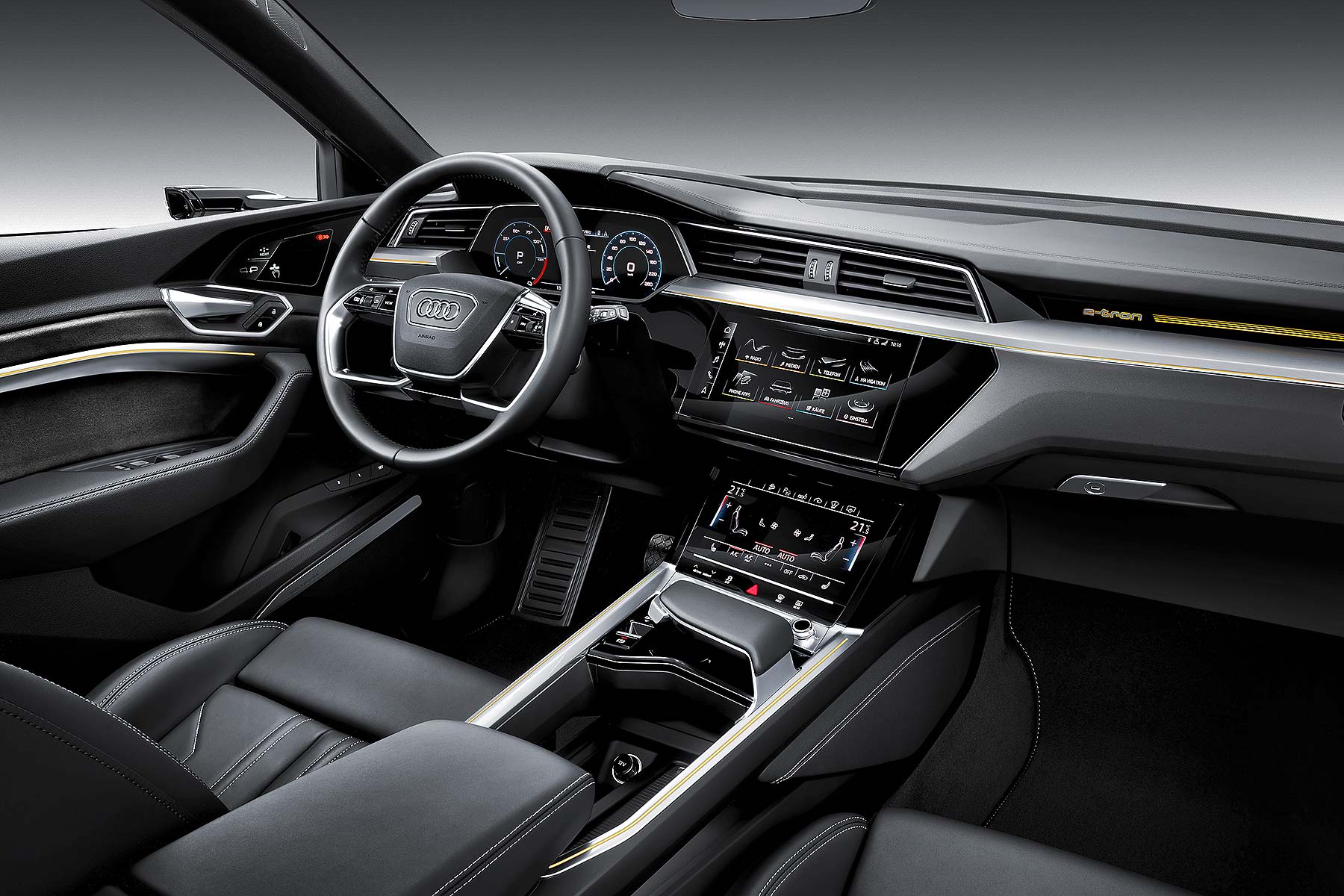
The E-tron has a typically Audi-grade interior, with a high-end look and neatly-integrated technology. There’s a slimline Audi virtual cockpit display and two further MMI touchscreen displays. The interior, which is roomy for five, delivers “a new level” of quietness. “The only sounds are from its tyres and the gentle hum of the electric motors.”
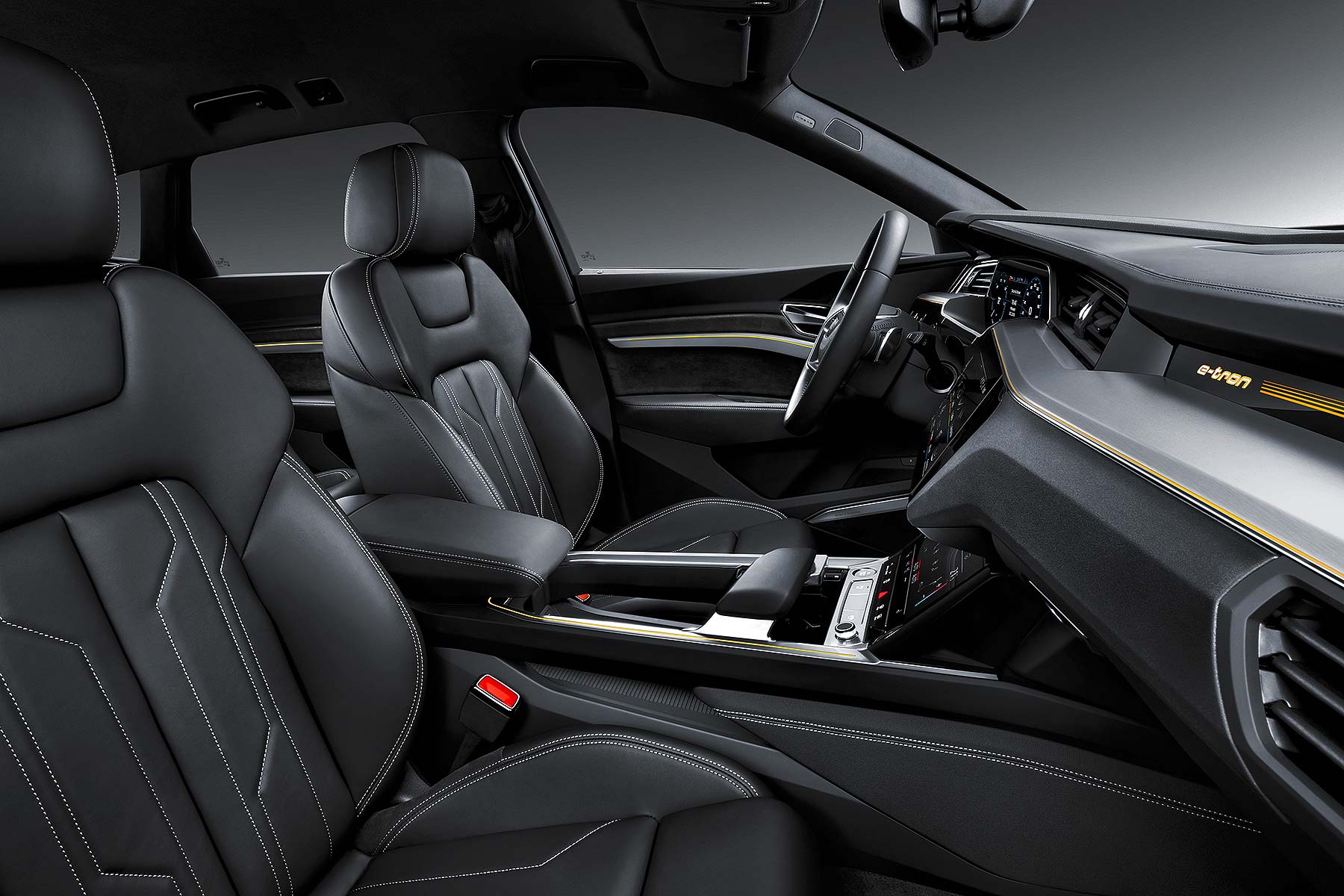
Audi says the E-tron uses world-first electrohydraulic brake control. This sees energy recovered by the electric motors in more than 90 percent of decelerations – topping up the battery as the E-tron slows down. It can contribute as much as 30 percent to the range, depending on how it’s driven.
The heater for the cabin and booster for the air conditioning is powered by waste heat from electrician components. This can boost the range by up to 10 percent, depending on the weather.
The new Audi E-tron is built in Belgium, and production has already started. Boosting the car’s credentials is the fact Audi’s made the car factory entirely CO2-neutral.
In a move mimicing Tesla’s Model 3 preorders, Audi is already accepting orders for the new E-tron in the UK. Buyers are asked to put down a £1,000 deposit.